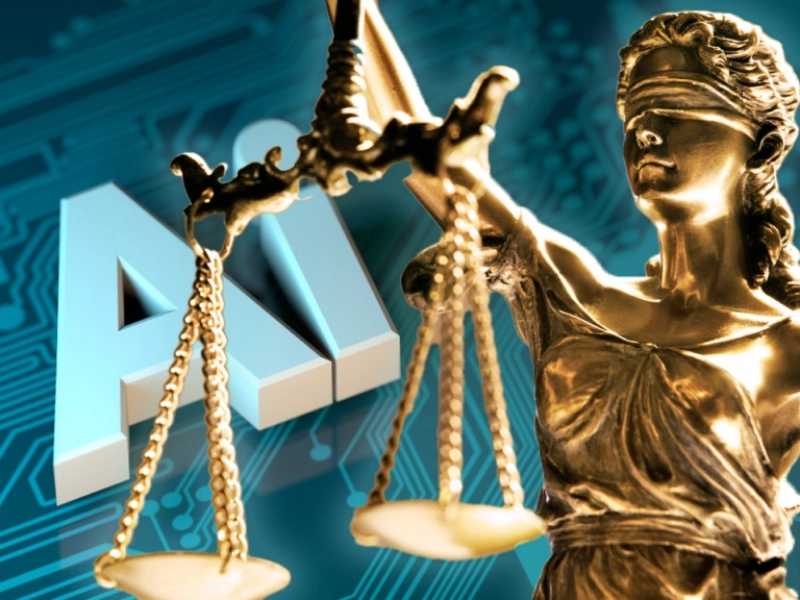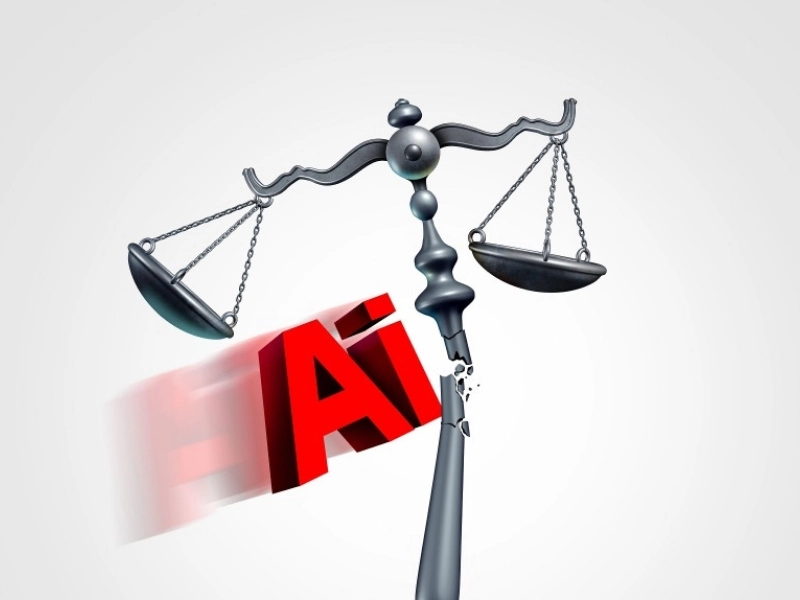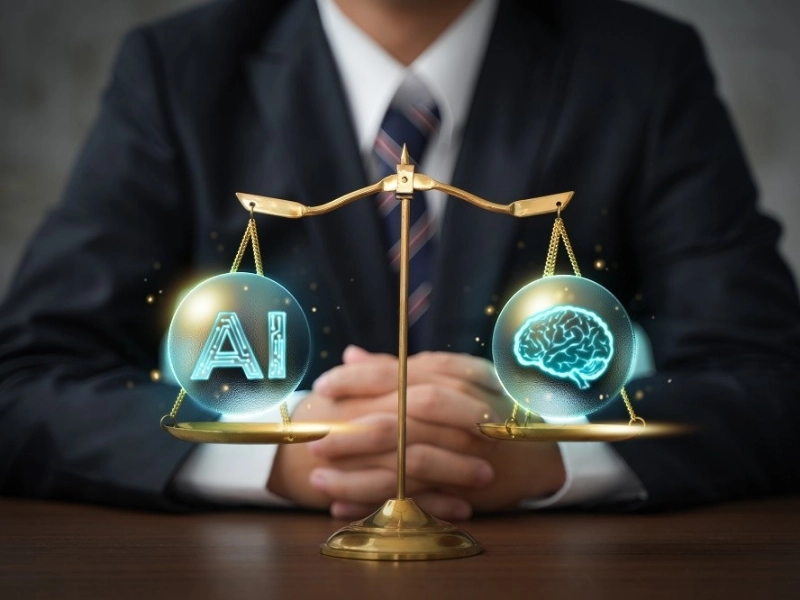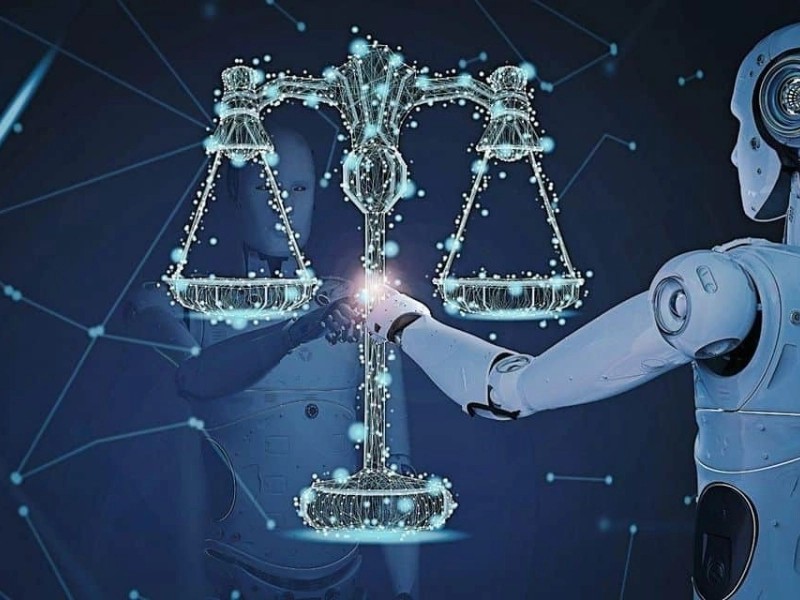Understanding The Legal Implications Of Artificial Intelligence
The legal world is constantly talking about AI. A lot of the time, these conversations are based on relevant human rights concepts, like nondiscrimination, data protection, and privacy. However, given how rapidly AI is developing, there are now more concerns than ever about how to advance AI while upholding democratic principles and human rights. Among these inquiries are:
Legal Concerns

Confidentiality
 The way AI uses data raises the most evident privacy problems. The idea behind many privacy laws is that organizations should only keep as much personal information about an individual as necessary and use it for that purpose. Other principles supported by these laws include accountability, usage limitation, and purpose specificity. These ideas are substantially challenged by AI.
For instance, consumers' input into an AI model, such as a voice assistant, can be used, even unknowingly, to enhance future interactions with the user. Although this kind of metadata collection has been around for a while, many consumers find it confusing because it is frequently stated in policy language in very limited terms.
As these privacy concerns become more apparent, public trust may decline, potentially leading to increased scrutiny and legal action. Therefore, it is imperative that attorneys assess the representations and warranties made by vendors to make sure that any potential negative effects of an AI system's decision-making processes are sufficiently addressed.
The way AI uses data raises the most evident privacy problems. The idea behind many privacy laws is that organizations should only keep as much personal information about an individual as necessary and use it for that purpose. Other principles supported by these laws include accountability, usage limitation, and purpose specificity. These ideas are substantially challenged by AI.
For instance, consumers' input into an AI model, such as a voice assistant, can be used, even unknowingly, to enhance future interactions with the user. Although this kind of metadata collection has been around for a while, many consumers find it confusing because it is frequently stated in policy language in very limited terms.
As these privacy concerns become more apparent, public trust may decline, potentially leading to increased scrutiny and legal action. Therefore, it is imperative that attorneys assess the representations and warranties made by vendors to make sure that any potential negative effects of an AI system's decision-making processes are sufficiently addressed.
Accountability
 The fact that a large number of people are involved in the development and application of AI systems raises liability concerns. Furthermore, these actors might be found anywhere in the world and have a variety of occupations. As such, it would be extremely difficult for victims to bring legal action against each and every individual accountable for the harm they endured.
The fact that it is not always simple to determine who has committed an illegal and responsible act that resulted in harm further exacerbates the issue. This is particularly valid in situations where there is a force majeure (e.g., a power loss).
Introducing backend operators who are accountable for any harm the AI system causes is one way to solve the problem. Those who define AI technology and provide critical backend support services, such as data or software updates, may fall into this category. This is logical because these individuals both benefit from and have control over this source of danger.
The fact that a large number of people are involved in the development and application of AI systems raises liability concerns. Furthermore, these actors might be found anywhere in the world and have a variety of occupations. As such, it would be extremely difficult for victims to bring legal action against each and every individual accountable for the harm they endured.
The fact that it is not always simple to determine who has committed an illegal and responsible act that resulted in harm further exacerbates the issue. This is particularly valid in situations where there is a force majeure (e.g., a power loss).
Introducing backend operators who are accountable for any harm the AI system causes is one way to solve the problem. Those who define AI technology and provide critical backend support services, such as data or software updates, may fall into this category. This is logical because these individuals both benefit from and have control over this source of danger.
Openness
 Significant media attention has been given to a number of gaps and difficulties in AI legal studies. These relate to employment displacement, security and abuse, traceability, bias, autonomy and control (including human oversight of autonomous systems), and security.
Concerns about data security and privacy are increased when AI interacts intimately with enormous volumes of data. These consist of the following: the right to give informed consent; the right to know how one's personal information will be used; the right to stop processing that could lead to harm or distress; and the right to not have decisions made purely on the basis of automated processing (Brundage 2018).
Discrimination is an additional issue. This might happen if AI is taught based on historical prejudices or disparities, such as gender, race, or ethnic stereotypes. It can also happen when associations use AI to make job judgements and application evaluations. People may be refused employment, added to no-fly lists, or subjected to surveillance. This may have a significant impact on minorities and underprivileged populations.
Significant media attention has been given to a number of gaps and difficulties in AI legal studies. These relate to employment displacement, security and abuse, traceability, bias, autonomy and control (including human oversight of autonomous systems), and security.
Concerns about data security and privacy are increased when AI interacts intimately with enormous volumes of data. These consist of the following: the right to give informed consent; the right to know how one's personal information will be used; the right to stop processing that could lead to harm or distress; and the right to not have decisions made purely on the basis of automated processing (Brundage 2018).
Discrimination is an additional issue. This might happen if AI is taught based on historical prejudices or disparities, such as gender, race, or ethnic stereotypes. It can also happen when associations use AI to make job judgements and application evaluations. People may be refused employment, added to no-fly lists, or subjected to surveillance. This may have a significant impact on minorities and underprivileged populations.








